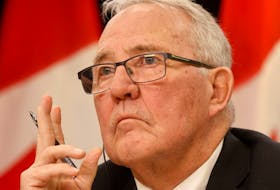I can’t say for sure, but it wouldn’t surprise me if veterans of the tobacco industry scan news items on the public grilling of social media executives and think to themselves, “been there, done that.”
Manufacturers of cigarettes, cigars and other cancer-inducing products spent decades denying that the great globs of tar found to be clogging the insides of deceased smokers had anything to do with the two or three packs of Camels they sucked on every day. Cancer? Don’t look at us. Must be some other explanation.
Given the size and wealth of the industry, it was never hard to find a medical professional or six who were willing to conduct a research study validating the industry’s claims. Health departments begged to differ, however, and regulatory restrictions grew with time. The average pack of smokes now carries pictures of grossly diseased body parts, and subtle warnings about the dangers, along the line of, “Smoke this and you die!”
The percentage of people who smoke has fallen substantially, but there’s still a group that isn’t about to quit no matter how much you lecture them. I wanna smoke, I’m gonna smoke! It just goes to show that the world includes a whole lot of people who don’t care how dumb, damaging or self-destructive their actions are.
Lately, the tobacco executives’ counterparts in the tech industry have been hauled before government committees to explain their actions in much the same way. How dare Twitter suppress a report on Hunter Biden on the basis that it was probably a load of BS? “What I want to try to find out,” demanded Senate judiciary committee chairman Lindsey Graham of Twitter CEO Jack Dorsey, “is if you’re not a newspaper at Twitter or Facebook, then why do you have editorial control over the New York Post?”
Dorsey didn’t reply by suggesting the notion that anyone should take Sen. “ Use my words against me ” Graham seriously was dubious in itself. Nor did he point out that Twitter did nothing in any way, shape or form to stop, impede or otherwise influence the Post’s willingness to run whatever it wanted, it simply declined to carry it unquestioned on its feed.
Graham and others might have a case in noting that Twitter happily transmits so much other drivel that one more instance couldn’t make much difference. But that wasn’t their point. Graham and other Republicans are mad because they think tech giants are particularly resistant to tweets and other profundities uttered by their hero in the White House, and those who support him. It upsets them that tobacco-like notices are being attached, alerting readers to warnings about questionable statements.
There is much to doubt about their case. Facebook, for instance, refused to permanently suspend the account of Steve Bannon, a former advisor to U.S. President Donald Trump, just because he suggested that COVID-19 expert Dr. Anthony Fauci and FBI Director Christopher Wray should be beheaded. Advocating murder evidently doesn’t violate Facebook’s rules enough to warrant closing Bannon’s account. Since neither could be labelled a Trump favourite, it’s hard to claim Republicans alone are being singled out for unfair treatment.
What could be argued, and justifiably so, is that the tech giants have been all over the map in deciding why they exist. Are they open platforms on which anyone with a keyboard can post whatever fevered thoughts pulse through their brains? Do they carry no responsibility over material that is false, misleading, hateful or otherwise malicious, even if it violates laws against hate speech, incitement or other crimes?
If the answer to either of these is yes, where do they get off putting warning labels on the president, or anyone else? If it’s no, how far does it extend, and who decides what’s acceptable and what isn’t?
It’s worth noting, as seems rarely to be done, that these are private enterprises. No one makes anyone post a tweet, read a tweet or sign up for Facebook. If you want to fill your lungs with any of the 69 cancer-causing chemicals found in burning tobacco, it’s your decision. If you want to burden Facebook friends with 300 photos of your cutesy-wootsie new puppy, you can (though they don’t have to look). Life can proceed quite pleasantly without doing either.
The burden for tobacco firms was the recognition that their product killed people. For social media it’s the realization that quite a few customers have difficulty distinguishing between the demonstrably reasonable and the wholly nutty. Conspiracy theorists, anti-vaxxers, charlatans, cheats, fantasists, quacks, the ill-informed and the deranged proliferate on these platforms, and acquire worryingly large followings. Shouldn’t these people be warned in some way?
Perhaps. But there’s something else to consider. Smokers know all about the cancer warnings. They’ve seen the horrid photos, been lectured by their doctors, banned from public spaces and treated with anything from concern to disgust by family and friends. Still, they fire up their butts.
Similarly, there’s no reason to believe warning labels on social media would have much impact. When thousands of people are willing to crowd, maskless, in the frigid cold to hear Donald Trump tell them that 250,000 COVID deaths are nothing but fake news generated by a biased industry, are they likely to be dissuaded by a warning suggesting the above may not be entirely true?
Tobacco executives know the answer to that. More than 50 years after the U.S. Surgeon General announced a clear link between smoking and cancer, the industry is just fine. That 1964 announcement was made on a weekend to minimize disruption to the market. Must have worked: tobacco shares are as strong as ever . It just goes to show that you can tell people anything you want, but you can’t make them listen.
National Post
Twitter.com/kellymcparland
Copyright Postmedia Network Inc., 2020








